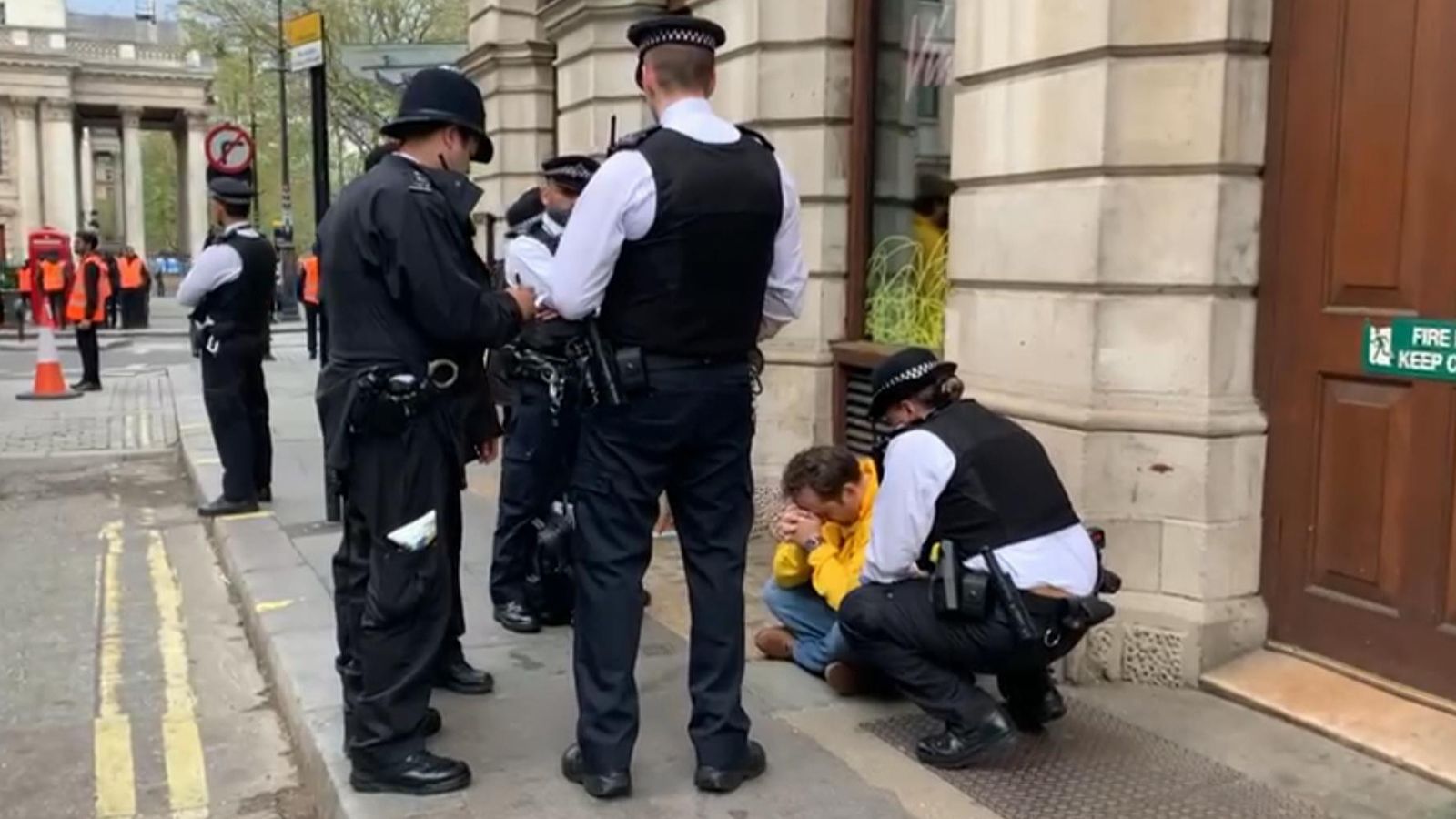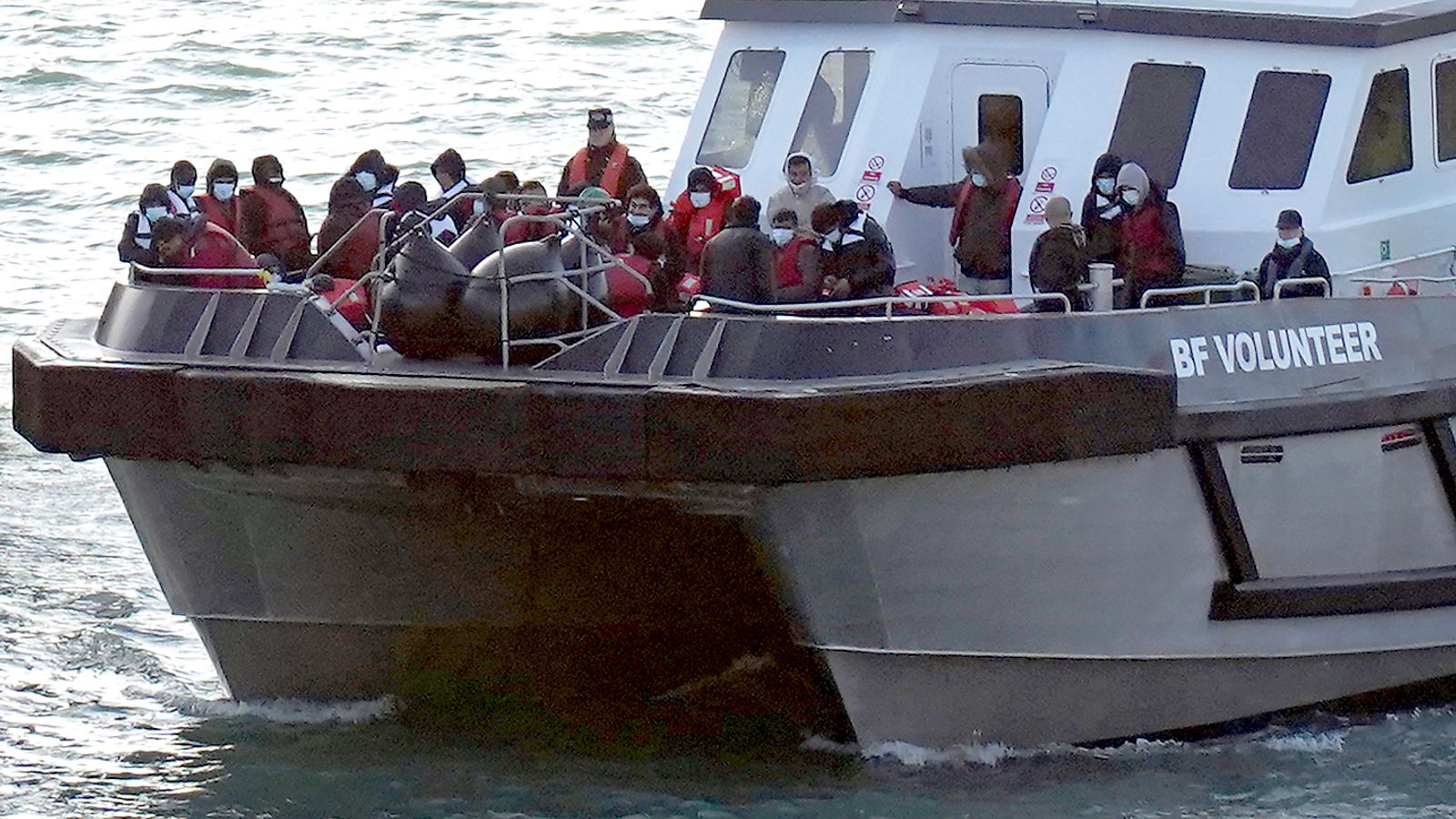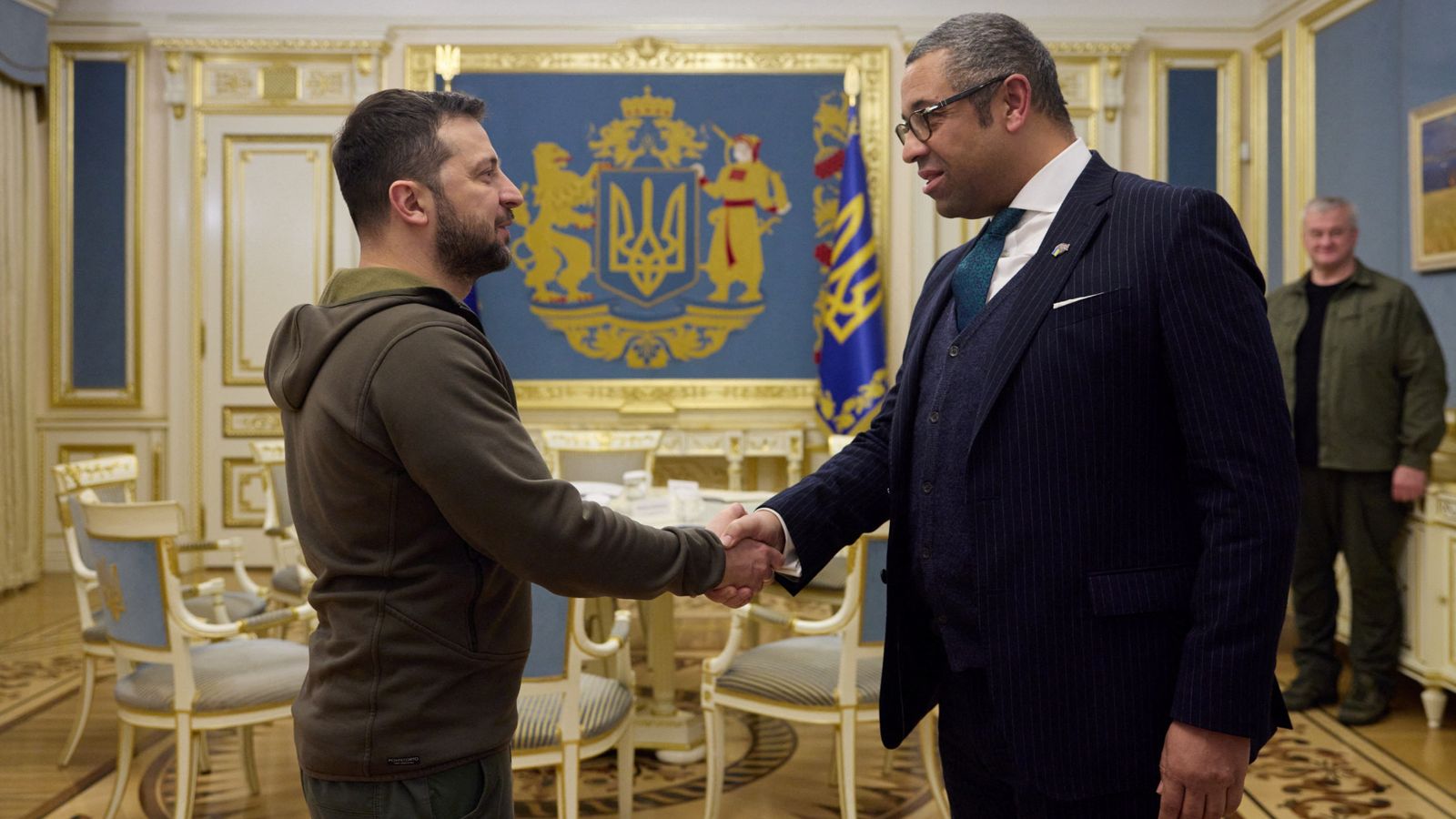Coronation protesters arrest to be investigated by MPs

The arrest of republican protesters by police during the coronation is going to be investigated by a powerful group of MPs.
The Home Affairs Select Committee has announced it will be taking evidence from witnesses next Wednesday – 17 May.
It comes after the Metropolitan Police apologised for arresting republican demonstrators on Saturday ahead of the crowning of the King.
The witnesses have not been listed yet, but Metropolitan Police chief Sir Mark Rowley appeared before the committee in recent weeks.
Sunak’s first PMQs since bruising local elections – latest updates
Dame Diana Johnson, the Labour MP and chair of the committee, tweeted that they will hold an “an urgent evidence session on policing of protests at the coronation and impact of the Public Order Act”.
The Public Order Act, which introduced new powers for the police to arrest people during protests, was given royal assent last week – just days before the coronation.
The Met issued a statement his week expressing “regret” for detaining six people – including the leader of the anti-monarchy group Republic, Graham Smith.
Read more:
Sunak defends new powers for police after protest backlash
How have protest laws changed – and how were they used?
Advertisement
Initially, police said they seized items which they believed could be used as lock-on devices – a power granted under the Public Order Act.
But the under-fire force later admitted it was unable to prove there was an intent to disrupt the event.
Officers arrested 64 people on coronation day, with 46 of those later bailed after being detained on suspicion of causing a public nuisance or breaching the peace.
Mr Smith said the Met Police were told it was not “physically possible to ‘lock on'” with luggage straps and that “they were told very clearly what those luggage straps were for”.
He also called for a “full inquiry” into who authorised the arrests during the “disgraceful episode”.
Prime Minister Rishi Sunak has backed the Met following the episode, and Labour leader Sir Keir Starmer hinted that he would not repeal the Public Order Act were he to take office – telling the BBC it needs time to “bed in” and that it will be mediated through case law.

